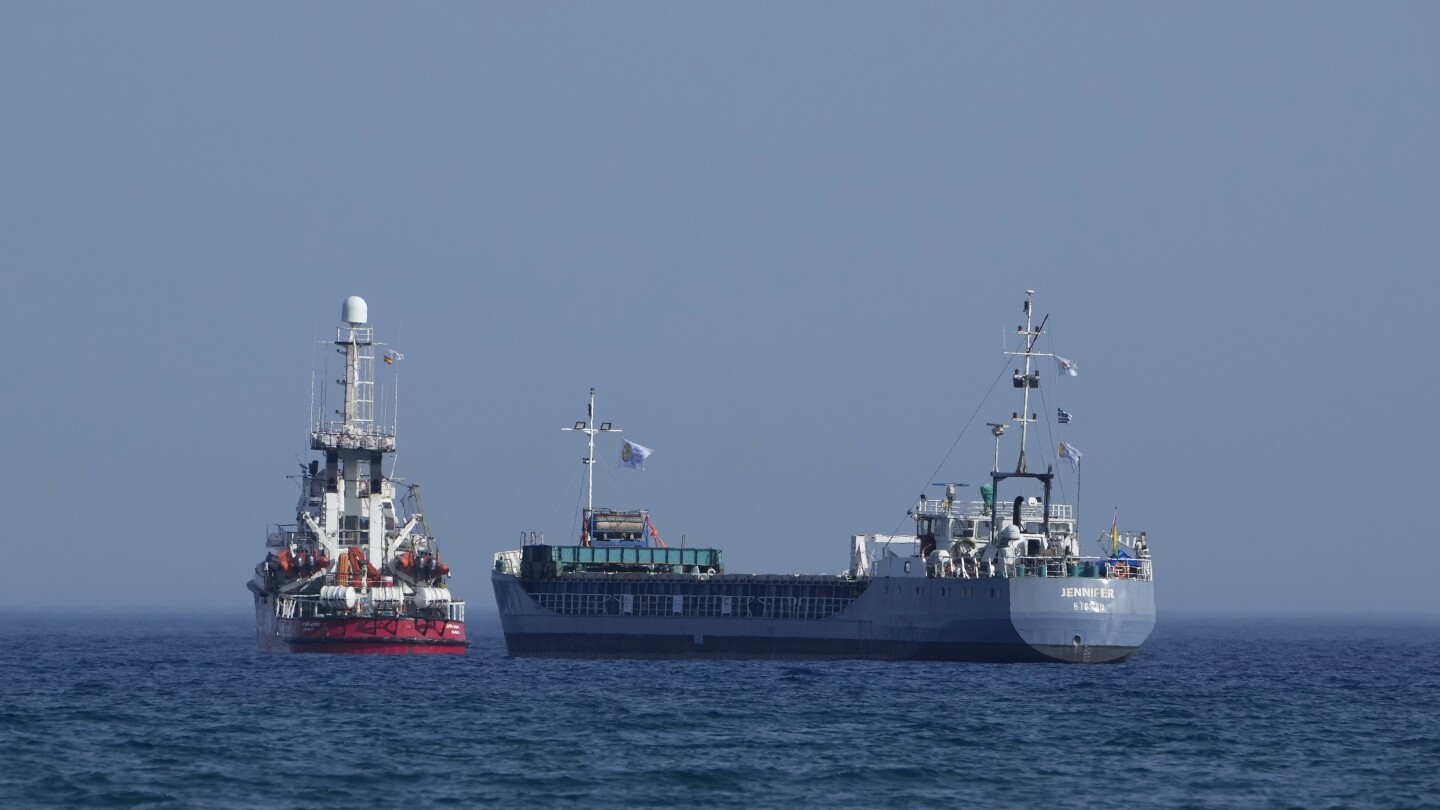A convoy consisting of three ships departed from a port in Cyprus, carrying 400 tons of food and supplies destined for Gaza. The convoy’s departure comes amid growing concerns about hunger in the territory.
The initiative was organized by the World Central Kitchen charity, which stated that the provisions aboard the vessels, including rice, pasta, flour, legumes, canned vegetables, proteins, and dates for Ramadan, are sufficient to prepare over 1 million meals.
While the exact arrival time in Gaza remains unclear, this shipment follows a previous delivery of 200 tons of aid earlier in the month. Humanitarian organizations, including the United Nations, have issued warnings about the possibility of famine in northern Gaza, emphasizing the urgent need for increased aid deliveries.
They argue that current efforts by sea and air are insufficient, pressing Israel to allow more aid to reach Gaza via land crossings.
In tandem with the aid efforts, negotiations between Israel and Hamas are set to resume, with Egypt mediating the discussions. However, progress toward a lasting ceasefire has been minimal since the conflict began after Hamas-led militants launched attacks in southern Israel.

Palestinian President Mahmoud Abbas (Credits: KOB 4)
The toll of the conflict has been devastating, resulting in significant civilian casualties and displacement, with critical infrastructure, including hospitals, schools, and homes, destroyed.
The situation has left a profound impact on Gaza’s population, particularly children, who struggle to recall life before the war amid the pervasive violence and destruction. The toll on civilians has been immense, with thousands of Palestinians killed, including women and children. Israel contends that a significant portion of those killed were militants, attributing civilian casualties to Hamas’s presence in residential areas.
Recent incidents, such as the shooting of Palestinians on Gaza’s beach by Israeli forces and the ongoing airstrikes in Gaza despite international calls for a ceasefire, underscore the persistent violence and humanitarian crisis. Aid efforts, including airdrops by the U.S. military, aim to alleviate suffering in Gaza, but the scale of the need remains staggering.
Amid the conflict, the formation of a new Palestinian autonomy government has been met with cautious optimism, signaling a potential step toward political reform.
However, challenges persist, as both Israel and Hamas reject the idea of the Palestinian Authority administering Gaza. Additionally, ongoing violence in the West Bank and East Jerusalem adds to the complexities of the situation, with casualties reported and tensions high.
Looking ahead, the path to peace and stability in the region remains uncertain, with entrenched political divisions, ongoing violence, and humanitarian crises exacerbating the challenges. Efforts by international actors to facilitate negotiations and provide humanitarian assistance are crucial, but the road to lasting peace will require sustained commitment and cooperation from all parties involved.























